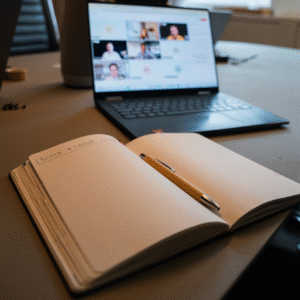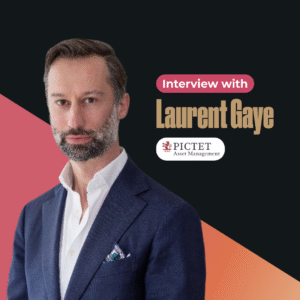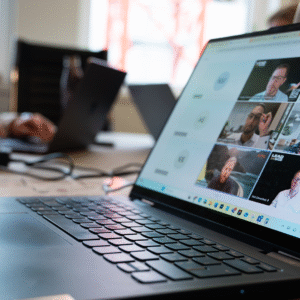Why Leaders Need Honest Conversations
When Luca from Miles & More GmbH stepped on stage last year with his colleague Dominik Sommer, he wasn’t sure what to expect. Would the room connect with their story? Would people challenge their model? Would they even laugh at the lighter moments they built into the talk?
However, the reality was that not only was the room full, but the conversations afterwards showed just how much resonance and honest critique their talk had encouraged.
“We didn’t know how much content was the right amount, or how serious versus how funny we should be. But when people came down to us afterwards with very concrete questions, even critical ones, that was when we realised how valuable this was. It wasn’t just presenting; it helped us reflect on our own model.” Luca mentioned.
Feedback is Gold
As Luca explained, the questions he received didn’t just affirm what he and his team had done, they exposed blind spots. Someone asked what would happen if employees stopped showing up; another challenged aspects of their role definitions. These weren’t issues Miles & More faced at the time, but being confronted with them pushed the team to think ahead and consider new perspectives.
““When you’re working on a model inside your company, you have people who are pushing it and people who are criticising it. But you’re still in your own bubble. When you share it with people from the outside, who know the struggles but have no reason to be polite, the validation feels more real. If they say it’s impressive, you know you’re on the right track.”
For leaders, that kind of unfiltered exchange is rare, as hierarchy, politeness, or caution often softens criticism within a company. This is one of the overlooked benefits of conferences: the chance not just to share, but to learn and be inspired by others’ reactions. At Lead26, surrounded by peers solely focused on learning, feedback hits differently. It is honest, sometimes blunt, and therefore invaluable.
Learning From Other Industries
Beyond the stage, Luca attended various sessions. One in particular that inspired him was by MAN Energy on transformation, offering ideas that could be adapted in Luca’s own organisation. He noted that even small initiatives, like their “future group” of volunteers, could be applied in his own context without copying the whole journey.
Moreover, the closing keynote by Levi’s CFO on the different levels of commitment, political, intellectual, and emotional, gave Luca a new way to communicate with his CEO. He described how this perspective provided the words to explain why people commit differently, highlighting the value of gaining insights from completely different fields.
The diverse mix of attendees and speakers allows lessons to travel across industries. A finance leader can learn from a fashion CFO, a people manager from an engineer. Advice from peers in different roles helps leaders approach their own management differently, revealing that challenges are often universal but viewed through different lenses.
Why Leaders Should Show Up
The difference between a webinar and a conference lies in interaction. At Lead26, you don’t just listen. You compare interpretations, debate ideas, and sometimes leave with an entirely new perspective. With hundreds of leaders from diverse industries in one room, the chance to encounter someone whose story resonates, or challenges your assumptions, is almost guaranteed. It’s this dynamic exchange that transforms insights into action.
Leadership Lessons That Last
True leadership isn’t about constant oversight but rather about creating the conditions for your team to thrive.
“The best leader is the one you don’t need. But that only works because he or she already did a good job, trying perspectives, showing strategy, and aligning the team. Leadership isn’t about telling people whether their work is good or bad. It’s about giving them direction and the space to do good work.”
Praise from superiors is secondary and actually, real validation comes from outcomes and those outside your organisation. When results are visible and peers recognise the impact of your work, that’s when leadership truly proves its value. Transformation should always be the baseline. Without accepting change as constant, even the best strategies and technologies can fail to take hold. Leadership comes next. Equipping teams to make sense of technology and customer needs and only then can tools and platforms truly create impact.
And a last, important note. What feels routine in your organisation might be groundbreaking elsewhere. Insights that seem ordinary to you can inspire breakthroughs for others. Recognising that your “normal” has value beyond your own walls is a powerful reminder of why sharing experiences, at conferences, in peer discussions, or across industries, really matters.
As Luca’s experience shows, attendees leave not just inspired but with new questions, insights from peers, and a clearer sense of where to focus next.
📍 Zurich, November 19, 2025
🎫 Secure your place today




